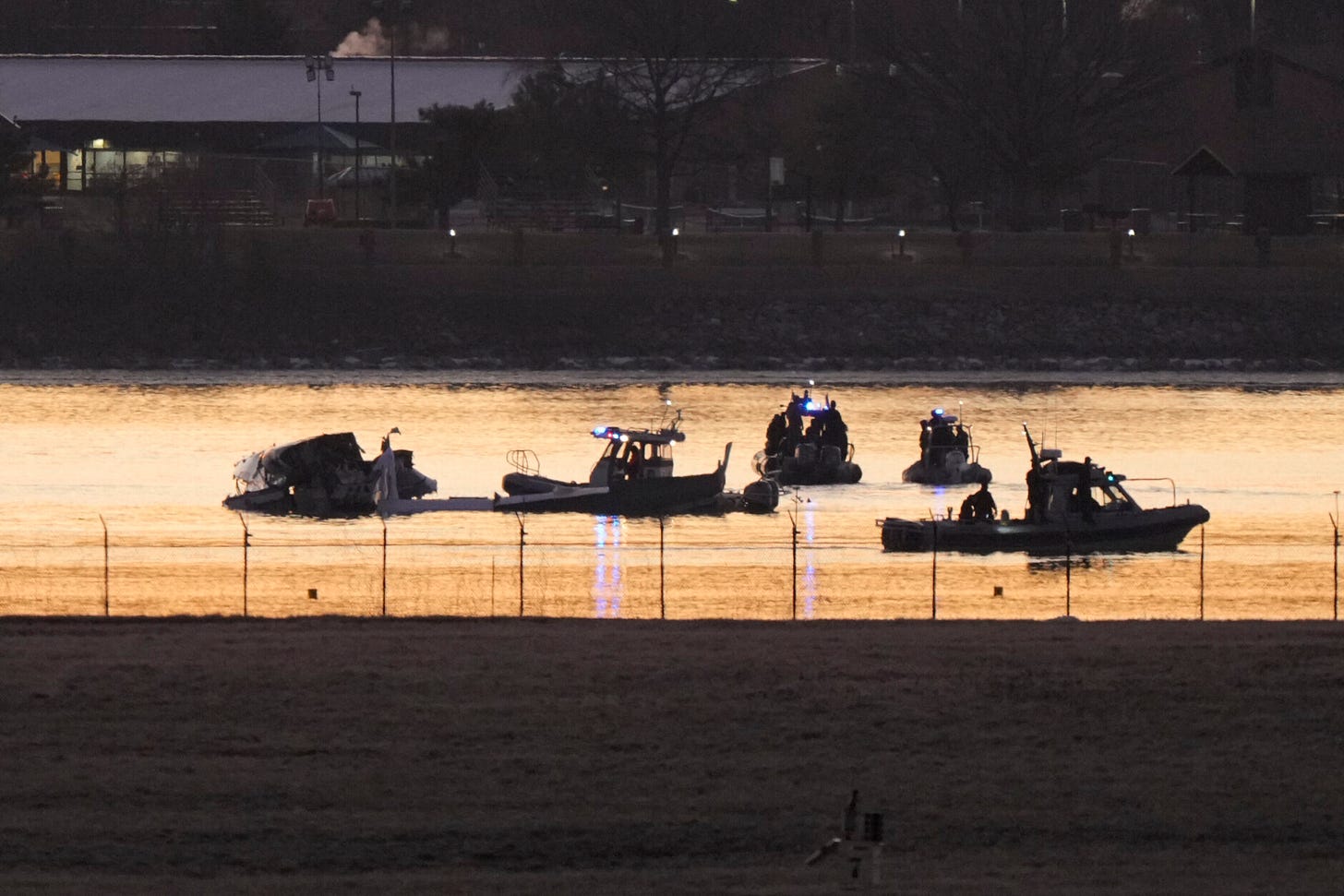
Sixty passengers are dead after a tragic aviation accident, and Donald Trump blames DEI.
Instead of showing empathy, leadership, goodness, and my God, mercy, he says, “I do want to point out various articles that appeared prior to my entering office — ‘the FAA’s diversity push includes hiring people with severe disabilities.” The man is evil, foolish, and cruel.
What gets me is the look on his face. His eyes are stern. His cheeks are pale. His lips are crusty. Nothing of the man displays empathy. Nothing displays an ounce of care for the fact that people are dead — and he has no capacity to feel it.
This is what we mean when we say he and those who follow him are soulless: they have lost their ability to feel, their capacity to grieve. Even death is a battle for power. Sadness becomes a stepping stone for proving a point. This is how you know he is lost — he does not laugh with people and he does not know how to mourn.
This event calls for that: to weep with those who weep; to mourn with those who mourn; to lead us through the fire and storm; to tend to the wound where it hurts; to say, “I’m sorry, you do not deserve this, they should still be here.”
Since your president won’t tell you, I will tell you: every human being in that accident was someone’s loved one. They had dreams and ambitions. They checked in for the flight; they entered the plane, ready to be taken elsewhere, excited, exuberant, nervous, and tired — they were young; they were old; they were happy; they were sad; they were visiting; they were returning home.
They were listening to their favorite songs. They were discovering new books and movies. If they were anything like me, they texted their loved ones, “hey, boarding up, everything looks good, I will see you soon.” They most likely ended the sentence with a heart emoji, smiling face emoji, peace-sign emoji.
They had almost arrived — and then in an ordinary instant: they were dead.
And now, their families, having watched their swift, bitter descent into a river of nothingness, have to grieve them. They didn’t get to say bye. They didn’t get to say I love you. Some of them won’t get to give them their last rites, their brief and spectacular departure. Some of their bodies were at the body of the river, waiting, not to be rescued, but recovered. We are sorry. We are so sorry. And we are with you. And we love you. And we wish it were not this way.
Now is not the time for argument. Now is not the time to punch down on others. Now is not the time for conspiracies and questions — that time, and it will be a mighty reckoning, will come. At this present, devastating hour, we must grieve. We must grieve because each victim was human and they were loved. We must grieve because they are dead and we are here.
If I can just be brutally honest, this month has been a hard month for so many of us. Difficult. Sad. Enraging. And it feels like an ocean of pain. There are people who are cheering on the slow, painful death of our nation. They have lost their humanity so much that they don’t have the capacity to grieve. They think life is only a battle — a war. Life is much more precious than that. Life is about carrying memory, goodness, mercy, care.
I speak of care because it’s the thing I believe we lack most. But what I mean to say is that we are lost and that our hearts are deteriorating. And if the deterioration is to be halted, it will be at the sacred garden of our grief — a space where we can beat back the decay, the corroding sickness that so plagues this nation. A place where we do not blame but we cry.
And the tears we cry becomes water for our souls. A place where the dead can be remembered and the living can be changed. Where the loved one of the dead can feel safe and the living can say that we will be as kind and as good and as merciful as we can — even if our presidents lack kindness and goodness and mercy.
And I know our president won’t say it but I will tell you this: I am so grateful that you are alive; I am so sad that they are dead; diversity and inclusion is not the enemy of life and love and progress; we will never turn your grief into a battleground; we will cry, we will cry, we will cry, and we will remain.
I want you to know that James Baldwin said, “the longer I live, the more deeply I learn that love—whether we call it friendship or family or romance—is the work of mirroring and magnifying each other's light.”
Mary Oliver once wrote, “I tell you this / to break your heart, / by which I mean only / that it break open and never close again / to the rest of the world.”
He might not care, he might can’t grieve but we can. And we will.





What has been amazing in the midst of this horrible nightmare is finding people that I have never heard of like this writer. I am so grateful for your work and your voice coming into my life at this time. Thank you for expressing this so eloquently.
Beautifully stated.
Thank you